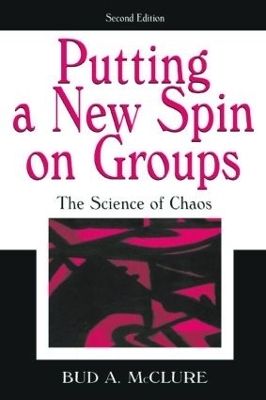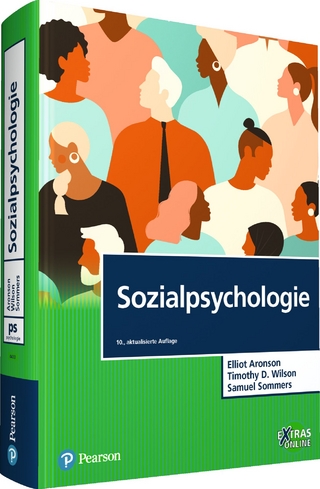
Putting A New Spin on Groups
The Science of Chaos
Seiten
2004
|
2nd edition
Psychology Press (Verlag)
978-0-8058-4874-8 (ISBN)
Psychology Press (Verlag)
978-0-8058-4874-8 (ISBN)
This authored bk continues to challenge orthodoxy&static ideas about small group dynamics.Particular attention is paid to how groups change,evolve&mature.McClure manages to serve up an intellectually challenged dish seasoned w/just the right amount real
Putting a New Spin on Groups: The Science of Chaos, Second Edition continues to challenge orthodoxy and static ideas about small group dynamics. A primary goal is to offer an alternative model of group development that addresses three factors:
*The model integrates old ideas from previous models of group development with new concepts from chaos theory and the work of Arthur Young.
*The book emphasizes the importance of conflict in group development and recognizes that group growth--while progressive--is neither linear or unidimensional.
*Particular attention is focused on how groups change, evolve, and mature.
In addition, this book highlights certain group phenomena that have been given only cursory attention in many group textbooks, including women in authority, group metaphors, regressive groups, and the transpersonal potential of small groups.
This book has been revised in response to feedback from reviewers and colleagues and includes new ideas, applications of chaos theory in social sciences, and thinking about group behavior. It is an intellectually challenging read with just the right amount of world application.
Putting a New Spin on Groups: The Science of Chaos, Second Edition continues to challenge orthodoxy and static ideas about small group dynamics. A primary goal is to offer an alternative model of group development that addresses three factors:
*The model integrates old ideas from previous models of group development with new concepts from chaos theory and the work of Arthur Young.
*The book emphasizes the importance of conflict in group development and recognizes that group growth--while progressive--is neither linear or unidimensional.
*Particular attention is focused on how groups change, evolve, and mature.
In addition, this book highlights certain group phenomena that have been given only cursory attention in many group textbooks, including women in authority, group metaphors, regressive groups, and the transpersonal potential of small groups.
This book has been revised in response to feedback from reviewers and colleagues and includes new ideas, applications of chaos theory in social sciences, and thinking about group behavior. It is an intellectually challenging read with just the right amount of world application.
McClure, Bud A.
Contents: Preface. Self-Organization and Chaos: Driving in Turkey. A Pot of Stew? Chaos and Transformation. Chaos and Transformation in the Social Sciences. Group Stage Model: The Arc. Chaos and Self-Organization in Groups. Group Leadership: Working With Chaos. Women in Authority. Group Leadership: The Descent. Group Leadership: The Ascent. Group Metaphors. Regressive Groups. Generative and Transpersonal Groups.
| Erscheint lt. Verlag | 31.1.2005 |
|---|---|
| Verlagsort | Philadelphia |
| Sprache | englisch |
| Maße | 152 x 229 mm |
| Gewicht | 430 g |
| Themenwelt | Geisteswissenschaften ► Psychologie ► Sozialpsychologie |
| ISBN-10 | 0-8058-4874-6 / 0805848746 |
| ISBN-13 | 978-0-8058-4874-8 / 9780805848748 |
| Zustand | Neuware |
| Haben Sie eine Frage zum Produkt? |
Mehr entdecken
aus dem Bereich
aus dem Bereich
Buch | Softcover (2024)
Heyne (Verlag)
12,00 €


